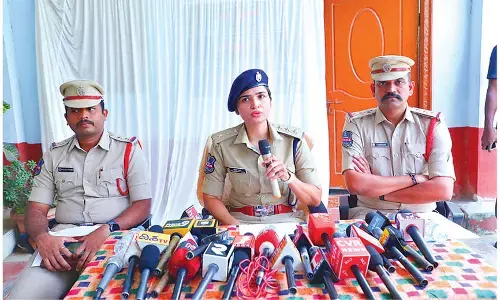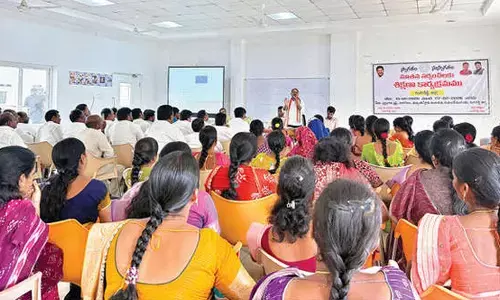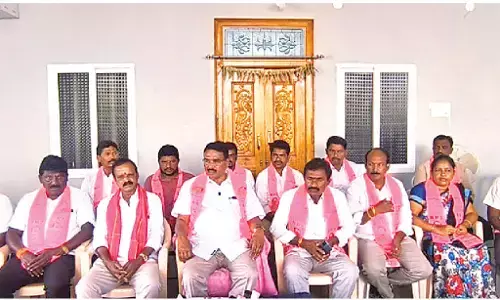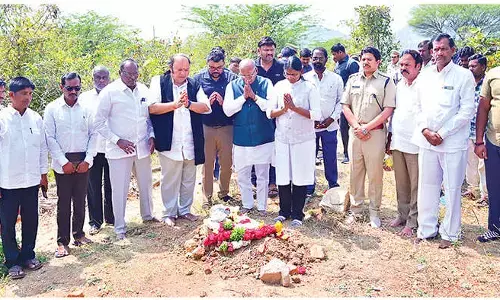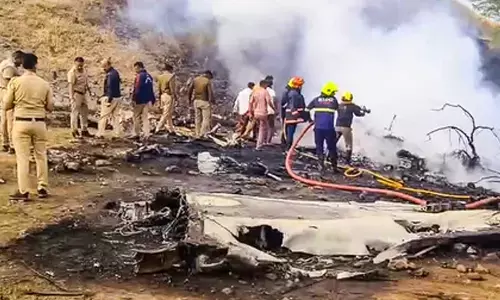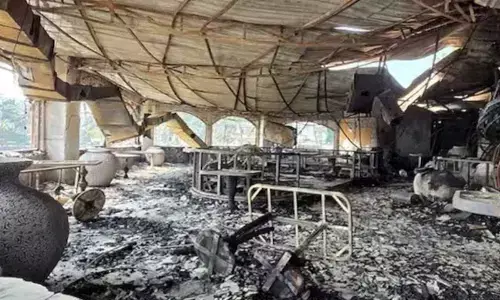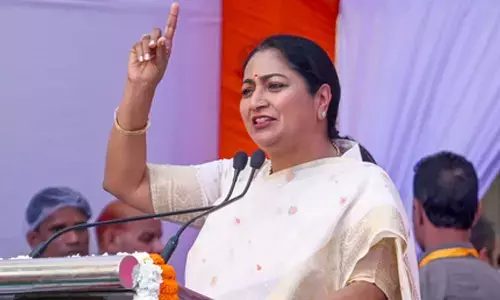Caste Census: An opportunistic politics for Congress

Rahul Gandhi is persistently harping on the Caste Census. This has been his principal campaign theme during the Lok Sabha elections earlier this year. Rahul Gandhi pretty much stuck to the same theme even during his remarks while participating in the discussion in the Lok Sabha on the Union Budget.
Significantly, Rahul Gandhi’s line is at sharp variance from the stand of not only the Congress, but also of the Congress Party’s First Family, or the Nehru-Gandhi Family, which has ideologically opposed Reservations. Pandit Jawaharlal Nehru, Indira Gandhi and Rajiv Gandhi never favoured the reservations route to help the weaker sections of society. Mahatma Gandhi, himself, never approved such an approach.
During the Constituent Assembly debates, Pandit Jawaharlal Nehru expressed himself against Reservations. Only in the case of the Dalits, some measure of reservations was acceded to, because of the history of injustice to Dalits and Adivasis. But even that measure was meant only for a period of 10 years, making it clear that it was purely a temporary measure and not a permanent solution to the social problem.
Now, not only has a temporary measure been converted into a permanent arrangement, but reservation is being extended even on religious grounds. What is worse, reservation is being elevated into a policy instrument.
For the first time, Rahul Gandhi has openly taken the position to not only push for the idea of reservations, but also to escalate the reservations steeply, over and above the Supreme Court mandated cap of 50 per cent.
Rahul Gandhi seems to support reservations for Muslims under the garb of the Backward Classes among Muslims. In fact, when in the Undivided Andhra Pradesh, the then State Chief Minister Dr Y S Rajashekhar Reddy pushed for 4 per cent reservation for OBCs among Muslims like the Ansari, it was being openly referred to by the Congress leaders as Muslims Reservations.
Does Rahul Gandhi see Caste Census and increased reservations for Dalits, Adivasis, Other Backward Classes and Minorities, who constitute nearly 80 per cent of the population, as the only weapon that can beat back the surging wave of Hindutva? Nothing else seems to explain the unseemly haste with which Rahul Gandhi is pushing for Caste Census.
The Congress is pressing for Caste Census because without data, it cannot initiate the process for increasing the percentage of reservations. Raising reservations for Dalits, Adivasis, OBCs and Minorities is being seen as the political trump card in what appears to be a hard-to-win political battle against Hindutva.
According to the Congress political managers, when the SCs, STs, OBCs and Minorities population is around 80 per cent, then reservations for them should be necessarily around 75 per cent. This surpasses the Supreme Court cap of 50 per cent on reservations. The Congress is pushing for legislation to remove the Supreme Court cap of 50 per cent on the reservations.
Participating in the discussion in the Lok Sabha on the Union Budget, Rahul Gandhi targeted the Modi Government. He declared that farmers, students and the middle-class were trapped in the lethal Chakravyuh formation of the legendary Mahabharat War. He also referred to its synonym, the Padmavyuh, or Lotus-formation, with the pun on the BJP election symbol, which no one can break, except for the legendary Arjun. In fact, Arjun’s son, Abhimanyu, is killed after being trapped in the Chakravyuh in the Mahabharat War.
Not stopping with his attack on the Budget proposals, Rahul Gandhi turned his focus on to the Budget Team. Referring to the pre-Budget Halwa Ceremony, Rahul Gandhi said there were no Dalits, Adivasis and OBCs in the Budget Team, who comprise a majority of the population, when the Halwa was being distributed.
The point he wanted to make loud and clear is that the Halwa is being cornered by a miniscule minority of the upper-castes, while the overwhelming majority of the weaker sections did not get to have the Halwa.
Surprisingly, however, Rahul Gandhi’s aggressive push for the Caste Census and for steeply raising Reservations to as high as 75 per cent, in order to reflect the social reality, finds no resonance within the Congress party. The Congress leaders are hardly enthused by Rahul Gandhi’s personal pitch on Caste Census and making it the basis for steeply raising the reservations for the weaker sections of the society.
Historically and ideologically, the Congress has consistently been opposing caste-based and religion-based reservations.
Not merely during the Constituent Assembly debates but long after that, too, there was no change in the stand of Jawaharlal Nehru. For instance, the First Backward Classes Commission under Kaka Kalelkar, was established by a Presidential Order under Article 340 of the Constitution on January 29, 1953. In two years time, the Kalelkar Commission submitted its Report on March 30, 1955. But the Kalelkar Commission Report was never implemented.
In a letter dated June 27, 1961, Nehru expressed his reservations about the tradition of caste-based quotas and privileges and his dislike for any kind of reservation, more particularly in service. Nehru took the position that reservations could compromise efficiency and result in a nation that settles for mediocrity rather than striving for excellence.
During the Janata Party Government of Prime Minister Morarji Desai, the Mandal Commission was set up on January 1, 1979. The B P Mandal Commission Report was submitted on December 31, 1980, when Indira Gandhi was already back as the Prime Minister. She, too, did not act on the Mandal Commission Report.
Interestingly, one of her popular and catchy election slogans was, Na Jaat par, na paat par, Indira Ji ki baat par, mohar lagaye haath par (Neither on caste, nor on creed, but on Indira’s word, cast your vote for the Hand symbol).
In August, 1990, when Prime Minister V P Singh announced his decision to implement the Mandal Commission Report, there was widespread backlash.
Apparently, even V P Singh used it for his own political expediency, more than to demonstrate his commitment to the ideal of social justice. As BJP veteran L K Advani announced his decision to roll out the Ram Rath Yatra, V P Singh flashed the Mandal Card to counter the Kamandal Card.
Participating in a debate in Parliament on the Mandal Commission issue on September 6, 1990, Rajiv Gandhi opposed such hasty measures as reservations. Rajiv Gandhi insisted that the problem of social and educational backwardness cannot be solved by playing politics or by limited politically-motivated manipulations.
Rajiv Gandhi pointed out that the problems of backwardness are very real and there is no single way of tackling the problem. Education is required but it takes years and even so there is no guarantee that it washes away the problem. Similarly, financial assistance alone cannot remove backwardness. It will help, but it cannot be said with finality that only reservations will help achieve the goal.
Rahul Gandhi may find that Caste Census and increasing reservations may prove to be a powerful weapon to fight Hindutva. But it is doubtful whether he can really go far with such a political approach.
As someone passionately swearing by the Constitution, he cannot miss the point that this very Constitution does clearly differentiate between Scheduled Castes and Backward Classes. The founding-fathers and the framers of the Constitution did make such a distinction. One wonders why the political class is losing sight of that distinction today.
In fact, earlier in the Women’s Reservation Bill, in the 33 per cent reservation for women, sub-quota was given to the SCs and STs. But the same could not be extended to the OBCs. The reason is that castes are not recognised in the Constitution.
Indeed, caste does count tremendously in the country. In a competitive democracy, caste tensions tend to get accentuated. But greater democracy can finally undermine and weaken the stranglehold of caste.
The legacy of the freedom struggle and the Constitution that fully reflects it, hold up the vision of a Casteless Society. In the hurly-burly of politics, one cannot lose sight of that hallowed ideal that can truly and completely transform Indian society.
(The writer is Delhi-based senior journalist and political commentator. Views are personal.)


